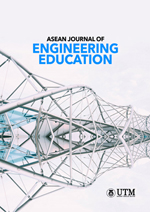Revolutionizing Engineering Education: Adapting Curricula to Address Artificial Intelligence Challenges and Opportunities
DOI:
https://doi.org/10.11113/ajee2024.8n1.145Keywords:
Engineering Curricula, Artificial Intelligence, Education Challenges, CertificationAbstract
Undergraduate university education is at an impasse, and the pandemic has merely highlighted its problems. There will be stark consequences if nothing is done to alleviate the issues. Mechanical Engineering is taken as an example, mainly because the authors are familiar with mechanical engineering, though it is suspected that the problems go beyond that. The issue currently faced is outlined, and one possible solution is offered. A new way to look at a course of study for engineering education is proposed. This is based on a different perspective on engineering education and considers that modern technologies have modified every aspect of knowledge retrieval and dissemination, particularly the dissemination of Artificial Intelligence as a tool for research and knowledge archive. The curriculum proposed here answers questions such as: Why should the course of study for becoming engineers begin by first dividing the required knowledge into a fixed and finite set of subjects; why should the courses last a fixed number of weeks with a certain number of hours each? The proposal is explained using the commonly used mechanical engineering curriculum, but it applies to any branch of engineering or any other field.



















